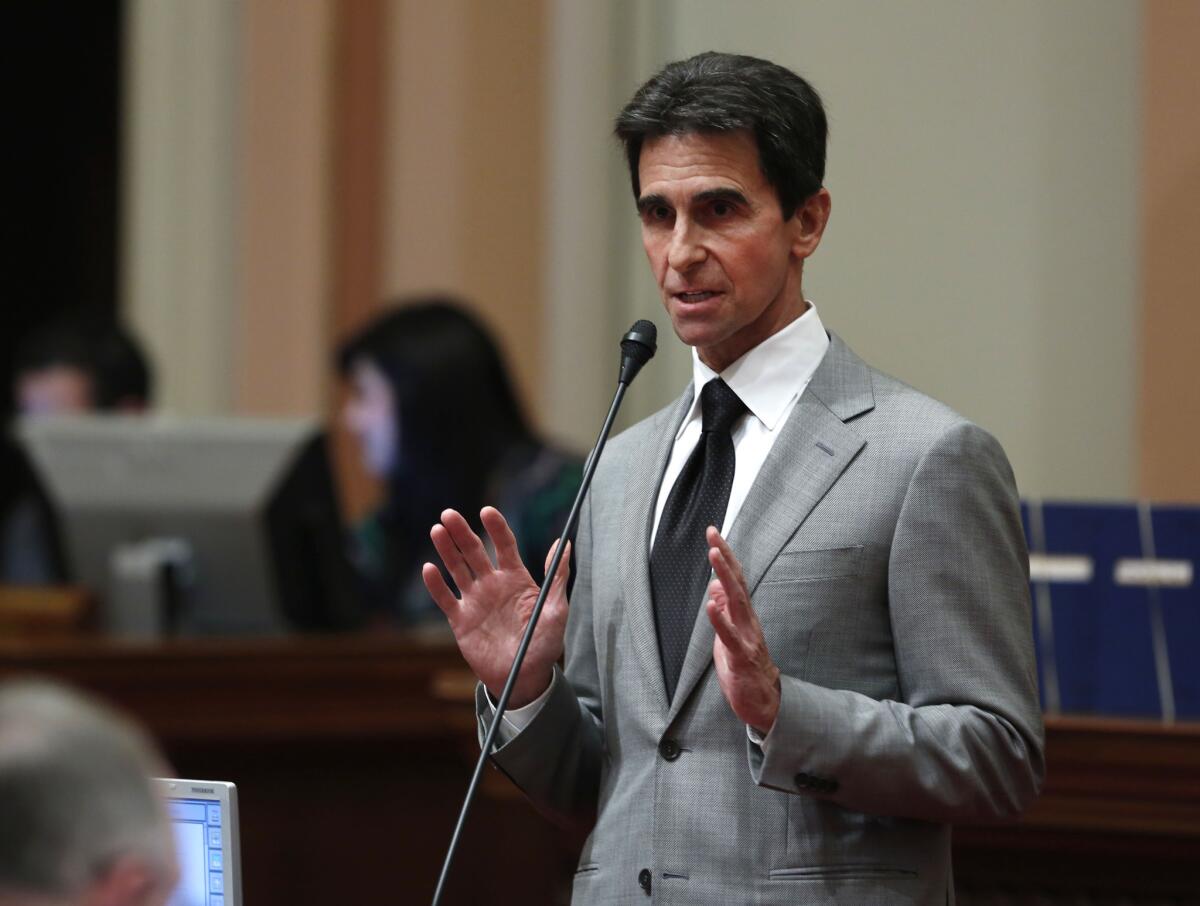California Senate passes bill raising minimum wage to $13 from $9

State Sen. Mark Leno (D-San Francisco), pictured during a recent floor debate, has proposed raising the state minimum wage to $13 per hour by 2017.
- Share via
Reporting from Sacramento — The state Senate on Monday approved a bill that would raise the minimum wage in California from $9 to $11 an hour on Jan. 1 and boost it again to $13 in 2017, with supporters saying it is necessary to lift millions of workers out of poverty.
Sen. Mark Leno (D-San Francisco) introduced the measure out of concern that a quarter of the state’s 38 million residents live in poverty, according to the U.S. Census Bureau.
“It is time that we make it illegal to pay sub-poverty wages in California,” Leno told his colleagues during the heated floor debate.
He said the wage increase would boost the economy because working families would be able to spend more money at local businesses. “Its going to be spent immediately to meet daily needs in our community,” he said.
The Senate approved the bill on a 23-15 party line vote.
Sen. Jeff Stone (R-Murrieta) predicted raising the minimum wage would force businesses to cut their number of workers. The proposal “hurts the economy by causing job losses,” he said.
Added, Sen. Tom Berryhill (R-Modesto), “Minimum wage was never meant to be a living wage. It is a start-up wage for kids.”
An employee working full time and earning $9 per hour takes home $18,000 annually before taxes, Leno said, noting that is 75% of the federal poverty line for a family of four.
A bill approved two years ago has the minimum wage increasing to $10 on Jan. 1 in California. His new bill would have set raises and then increase wages with the rate of inflation starting in 2019.
Leno failed to win legislative approval last year of a bill similar to his new proposal. But since then, action has been taken by some California cities, including Los Angeles, where the City Council is scheduled this week to boost the city’s minimum wage to $10.50 on July 1, 2016, and then gradually increase it to $15 in 2020. San Francisco recently approved a phased-in minimum wage increase that tops out at $15 in 2018
California’s bill also gained momentum after minimum wage ballot measures passed in Alaska, Arkansas, Nebraska and South Dakota, which are more politically conservative states. Lower wages force the state to provide financial assistance to families, he said.
“We taxpayers subsidize employers who pay sub-poverty wages,” Leno said before the vote to approve his bill, SB 3, which now goes to the Assembly for consideration.
Twitter: @Mcgreevy99
READ MORE ON THE MINIMUM WAGE DEBATE:
A new dawn for the minimum wage
Hardware store owner says raising pay resulted in better workers
For this McDonald’s cook, wage hike could be more harm than help
This dishwasher must choose between shoes for sons or paying phone bill
Child-care worker sees hours cut when Oakland’s minimum wage was raised
More to Read
Sign up for Essential California
The most important California stories and recommendations in your inbox every morning.
You may occasionally receive promotional content from the Los Angeles Times.














